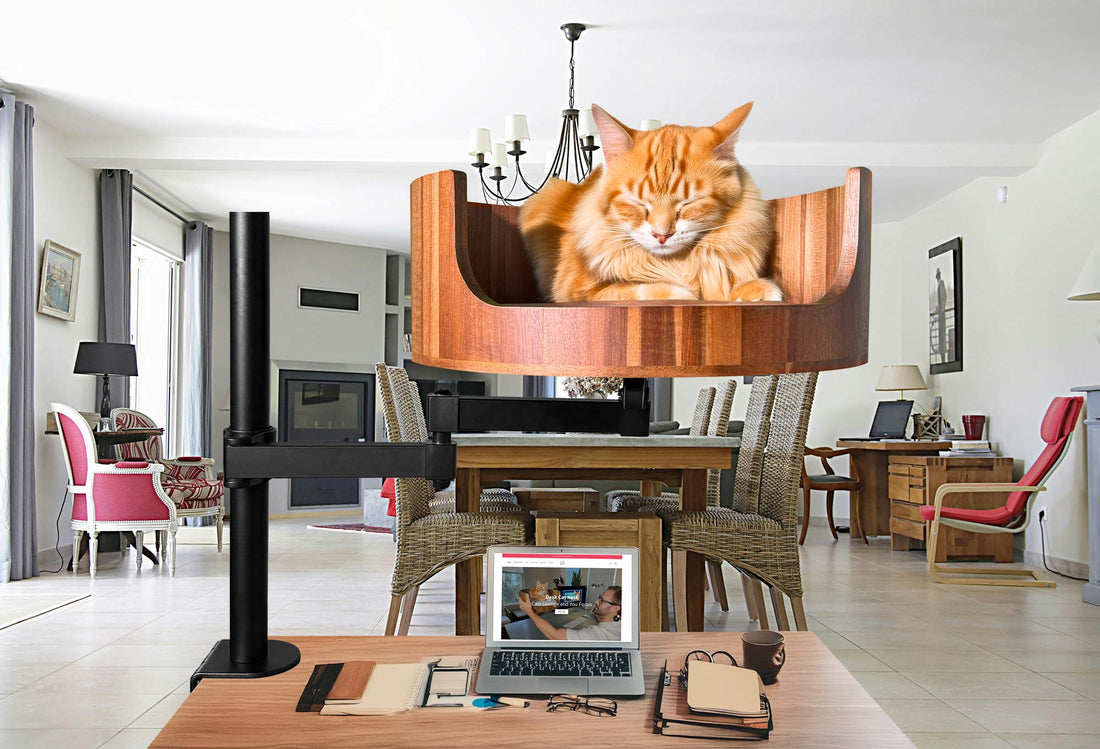
Why is my cat trying to eat my hair? Understanding Behavior
Share
Have you ever woken up to the sensation of your cat trying to nibble on your hair while you sleep? While it may seem like a peculiar behavior, it is actually quite common among feline companions. In this article, we will explore the reasons behind why your cat may be trying to eat your hair and what you can do to address this curious behavior.
Cats are known for their grooming behaviors, as they spend a significant amount of time licking their fur to keep themselves clean. However, when a cat starts to show an interest in chewing on their owner's hair, it can leave many pet parents scratching their heads. From seeking attention and affection to displaying curiosity or even mistaking hair for a form of play, there are various reasons why a cat may exhibit this behavior. Understanding the underlying motives behind your cat's actions can help you establish a closer bond with your furry friend and address any potential issues that may be causing them to chew on your hair. So, grab a cup of coffee, curl up with your cat, and let's dive into the world of feline behavior to unravel the mystery of why your cat is trying to eat your hair.
1. Cats may try to eat their owner's hair out of boredom, curiosity, or a desire for attention.
2. This behavior could also be linked to a nutritional deficiency in your cat's diet.
3. Stress or anxiety can also lead to hair-eating behaviors in cats, so it's important to address any underlying issues.
4. Providing mental and physical stimulation, high-quality cat food, and grooming your cat regularly can help reduce hair-eating tendencies.
5. Consulting with a veterinarian or animal behaviorist can help identify the root cause of this behavior and provide tailored solutions for your cat.
Reasons for Hair-Eating Behavior
There are several reasons why your cat may be trying to eat your hair. One common explanation is that cats are drawn to the texture and smell of human hair, as it resembles the fur of their prey in the wild. Cats may also exhibit this behavior as a form of grooming or bonding with their owners. Additionally, some cats may have pica, a disorder characterized by the consumption of non-food items, which could include hair.
Health Concerns Related to Hair-Eating
While occasional ingestion of hair may not be harmful to your cat, frequent consumption can lead to serious health issues. Hairballs, or trichobezoars, can form in the stomach or intestines of cats and cause blockages, which may require surgical intervention to remove. Ingested hair can also irritate the digestive tract and lead to vomiting, diarrhea, or constipation. It is important to monitor your cat's hair-eating behavior and consult with a veterinarian if you have concerns.
How to Address Hair-Eating Behavior
If your cat is trying to eat your hair, there are steps you can take to address this behavior. Providing your cat with appropriate chewing toys or treats can redirect their attention away from your hair. Regular grooming sessions to manage shedding can also help reduce the appeal of your hair to your cat. It is important to create a stimulating environment for your cat with plenty of toys, scratching posts, and interactive play to prevent boredom and anxiety, which can contribute to hair-eating behavior.
Desk Cat Nest FAQ
Why is my cat trying to eat my hair?
There could be a few reasons why your cat is trying to eat your hair. It could be a sign of affection, as some cats will groom their owners as a way to bond. It could also be a behavior stemming from boredom or stress. Make sure your cat has plenty of toys and mental stimulation to prevent this behavior.
Will the Desk Cat Nest help prevent my cat from eating my hair?
The Desk Cat Nest is designed to provide a cozy and comfortable space for your cat to relax and feel safe. By providing your cat with their own designated space, they may be less likely to seek comfort in grooming behaviors such as trying to eat your hair. However, it is important to also address any underlying reasons for this behavior.
How can I train my cat to stop eating my hair?
Training your cat to stop eating your hair can be challenging, but it is possible with patience and consistency. You can try redirecting their attention to toys or treats when they start to groom your hair. Additionally, providing them with plenty of mental and physical stimulation can help curb this behavior.
Is the Desk Cat Nest easy to assemble?
Yes, the Desk Cat Nest is easy to assemble and comes with clear instructions. Simply follow the step-by-step guide to set up the nest for your cat to enjoy!
In conclusion, the Desk Cat Bed is a valuable choice for cat owners dealing with the frustration of their feline friend trying to eat their hair. This cozy and comfortable bed provides a designated space for your cat to lounge and relax, reducing the likelihood of them seeking out alternative sources of entertainment like chewing on hair. With the Desk Cat Bed, both you and your cat can enjoy a peaceful coexistence without the annoyance of hair-eating behavior. Invest in the Desk Cat Bed today for a happier and more harmonious living environment for you and your beloved pet.



















































